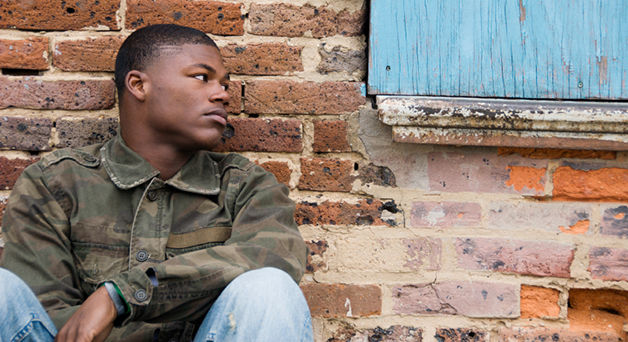RHY Stats in New York City

Homeless Youth & Teen Statistics & Facts
- Approximately *53,000 young people call the streets home every year.
- Nearly *7,400 homeless people 24 years old and younger live in New York City.
- Children under 18 accounted for 39% of the homeless population.
- Of that number, approximately 42% were younger than age 5.
- Approximately 40% of homeless youth identify as LGBT.
- Every year, approximately 5,000 homeless young people will die because of assault, illness, or suicide while trying to survive.
Young people are at far greater risk of becoming homeless if:
- Their parents engage in substance abuse or have mental health problems.
- They suffered or witnessed child abuse or neglect in the home.
- The family has been homeless previously.
- They identify themselves as lesbian, gay, bisexual, or transgender.
- They have been in foster care.
- Children who have been in foster care are at greater risk of becoming homeless at an earlier age and to remain homeless for a longer period of time than other youth.
- 46% of homeless youth escaped a home where they suffered physical abuse.
- 17% left because of sexual abuse.
Young people who are too old for foster care, yet too young to apply for social services are often forced into homelessness. Homeless youths can face devastating short and long-term consequences.
- Nearly 43% of homeless young men and 39% of homeless young women say they were assaulted with a weapon while living on the streets.
- Homeless youth suffer significant mental health problems including: depression, substance abuse, suicidal thoughts, anxiety, and post-traumatic stress disorders.
- Homeless youth are approximately 75% more likely to self-medicate and abuse substances as a means to deal with trauma and abuse.
- Children living on the streets are more likely to engage in “survival sex” – trading sex to gain food, clothing, drugs, money, or just for a safe place to sleep at night.
- According to a San Francisco government study, 17% of homeless youth are HIV-positive.
- Homeless youth who identify as lesbian, gay, bisexual, or transgendered are more likely commit suicide than other youth.
AAPCI’s Thaddeus G. Whitley TIL Residence helps give homeless young people the refuge they need from the streets – and critical resources they need to find safety and hope. If you would like to join us in making a difference for young people in crisis please see how you can help below:
*Figures of exactly how many homeless youth there are at any point in time are difficult to determine and available counts on homeless youth may be flawed. (Source: U.S. Department of Housing and Urban Development)
Thaddeus G. Whitley Submenu
Hotline Phone Numbers
National Domestic Violence Hotline
1-800-799-SAFE (7233)
1-800-787-3224 (TTY)
National Teen Dating Abuse Helpline
1-866-331-9474
1-866-331-8453 (TTY)
In New York City ONLY
Domestic Violence Hotline: 1-800-621-HOPE (4673)
Crime Victims Hotline: 1-866-689-HELP (4357)
Rape & Sexual Assault Hotline: 1-212-227-3000
TDD phone number for all hotlines: 1-866-604-5350
Volunteer Adult Literacy Tutor
Become a volunteer tutor in reading, writing, G.E.D. Prep, or English as a Second Language (ESL).
Call the Literacy Partners at 646-237-0120 or visit the Adult Literacy Tutor program, or Literacy Partners. Help change lives and make New York City one of the country’s most literate cities.


